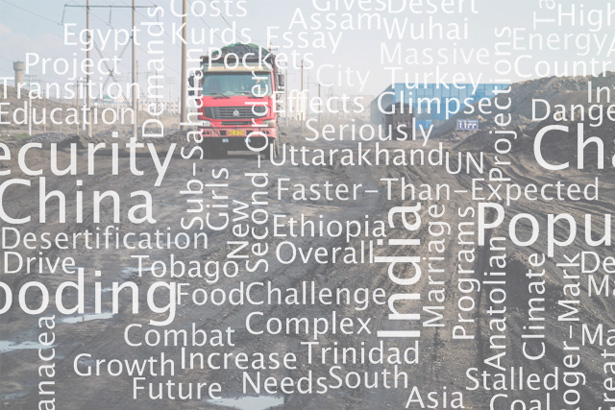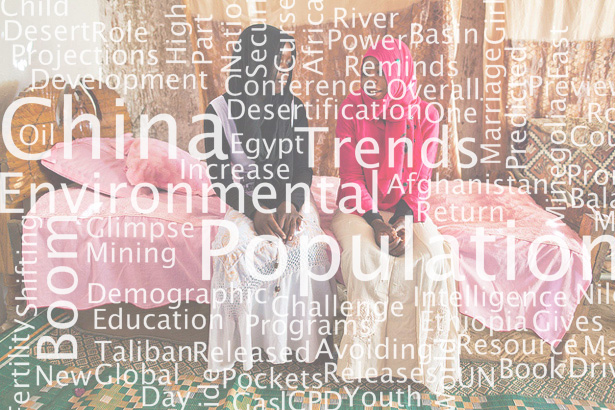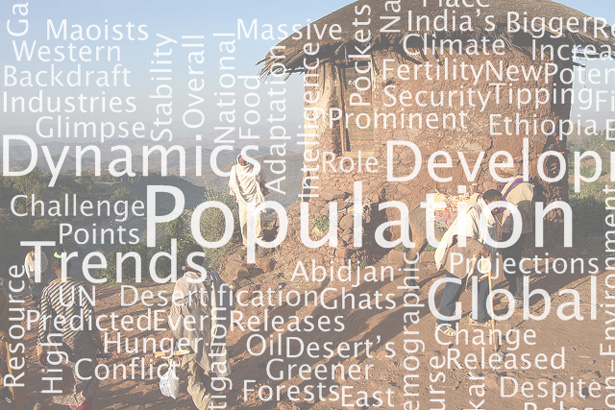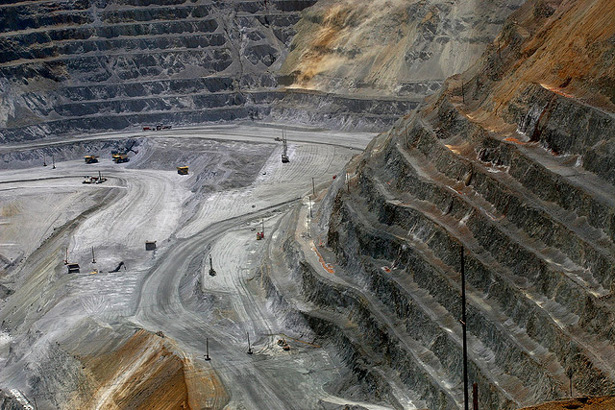-
Top 10 Posts for August 2013
›
August brought new blood to the blog: 7 of the 10 most popular posts (by unique pageviews) last month were new. ECSP Director Roger-Mark De Souza appeared in a documentary about climate change adaptation in Trinidad and Tobago; the China Environment Forum’s Susan Chan Shifflett posted a stunning photo essay of her trip to the Wuhai City coal complex; and we had two stories on India’s climate change challenges, including one from a visiting West Point cadet. Meanwhile, Elizabeth Leahy Madsen and Kathleen Mogelgaard continued their analyses of recent demographic surveys, examining faster-than-expected growth in “Feed the Future” focus countries and why the demographic transition has stalled in sub-Saharan Africa.
-
Flooding and Food Security in Trinidad and Tobago: Roger-Mark Interviewed for ‘A Sea Change’
›August 21, 2013 // By Schuyler Null“Climate change is one of the greatest challenges that we are facing in today’s world; it is particularly important for us in the Caribbean and for a country like Trinidad and Tobago,” says ECSP Director and Trinidad-native Roger-Mark De Souza in an upcoming documentary by Sustain T&T, a non-profit based in the islands.
-
Top 10 Posts for July 2013
›
June and July are traditionally slow in Washington, but not this year: ECSP and GHI hosted several big events at the Wilson Center, Roger-Mark traveled to the ICPD Human Rights Conference, and the UN released new population projections – coverage of which all made the top 10 most popular posts last month. Also joining the top 10 were two posts from the China Environment Forum and a cross-post from ChinaDialogue. Clearly China’s natural resource and climate change challenges are the minds of many. The final newcomer is Elizabeth L. Chalecki’s preview of her new primer on environmental security.
-
It’s Not (Just) About the Numbers: Resource Media’s Population-Environment Webinar
›“Unless something changes in a major way, Nigeria will pass the United States as the third most populous country by mid-century and rival China with its number of people by the end of the century,” said Ken Weiss in his introduction to a recent webinar hosted by Resource Media. But what does population growth have to do with the environment?
-
Top 10 Posts for June 2013
›
The UN released their biennial revisions to global population projections last month, revising their medium variant, mid-century estimates up by 250 million people. Kathleen Mogelgaard writes that, if a new IFPRI report is anything to go by, these projections may start playing a more prominent role in food security assessments.
-
Can Mexico Harness Its Demographic Dividend?
›
Mexico’s 2012 elections were important for a host of reasons: the PRI party returned to power after 12 years of rule by the more conservative PAN; there was the first female presidential candidate from a major political party; and turn-out was historically high. They also proved that Mexico’s young people are not as apathetic as some may have thought, with the emergence of the #YoSoy132 student movement demanding fair press coverage.
-
Lisa Dabek on How Papua New Guinea’s Tree Kangaroo Conservation Project Does More Than Conserve
›
“All through Papua New Guinea, in every province, there is logging and mining, but we are the first conservation area,” says Lisa Dabek in this week’s podcast.
Dabek is the director of the Tree Kangaroo Conservation Project (TKCP), an effort of the Seattle Woodland Park Zoo that works to protect tree kangaroos while empowering communities in Papua New Guinea’s YUS Conservation Area to manage their natural resources, health care, and food security.
-
Despite “Greener Economy,” Extractive Industries’ Effects on Global Development, Stability Bigger Than Ever
›
Despite the appearance of a new, “greener” economy, extractive industries – mining, oil, and natural gas – are now responsible for “moving more earth each year, just for mining and quarrying, than the global hydrological cycle,” writes the Transatlantic Academy’s Stacy VanDeveer in a recent paper, Still Digging: Extractive Industries, Resource Curses, and Transnational Governance in the Anthropocene. The costs of this activity are high and extend well beyond the wallet, he explains.
Showing posts by Schuyler Null.









